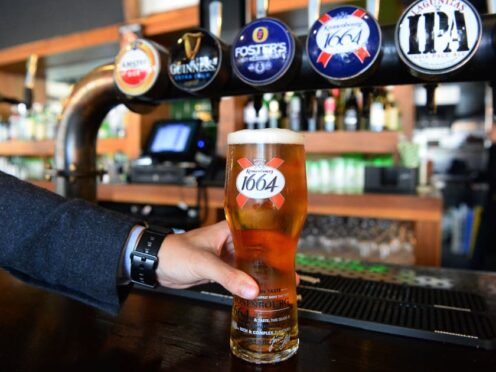The Scottish Government has been urged to “rapidly improve” the provision and impact of alcohol care teams.
Scottish Health Action on Alcohol Problems (SHAAP) commissioned a review of alcohol services in major Scottish hospitals, finding provision is fragmented.
The review was conducted by Figure 8 Consultancy on behalf of SHAAP.
It found 35,187 alcohol-related hospital admissions were recorded from 2021 to 2022.
It said many patients were not provided with any meaningful support to deal with their addiction.
As part of the review, NHS staff who work with such patients were interviewed regarding lack of provision and gaps in services.
The review found there was a “wide variation in the nature and capacity of alcohol services in acute hospitals in Scotland”, citing inconsistencies in how the services are funded.
It said there is a lack of clarity on leadership, and disparity in screening and management of “harmful, hazardous and dependent alcohol use”.
A variety of approaches are taken throughout the country, it found, which it said points to “a lack of standardisation” within health boards.
SHAAP highlighted a number of other areas for improvement, including inconsistencies in follow-up practices after patients are discharged.
It also said there is a reliance on community-led alcohol services, staffing shortages, and infrastructure issues.
SHAAP is now calling on the Scottish Government and health boards to act.
Dr Alastair MacGilchrist, chairman of SHAAP and a former consultant hepatologist, said: “Over 100 patients are admitted to Scottish hospitals every day due to the direct health effects of alcohol use.
“In addition, many patients admitted with illnesses not directly caused by alcohol are drinking in a hazardous or harmful manner.
“For all these patients, hospital admission is an ideal opportunity to address the alcohol issue and reduce the health and wider problems it causes for each person.
“The effectiveness of alcohol care teams has been known for over a decade, yet this review shows that in Scotland whether that opportunity is grasped is a classic ‘postcode lottery’, with alcohol services in hospitals revealed to vary from suboptimal to non-existent and with no consistent approach to funding or practice.
“There is a clear need for an agreed consistent approach which will require national and local commitment and clarity of responsibility for planning and delivery.
“This can only happen with increased and more transparent funding.
“Such an approach will reap benefits not only to those patients with health problems resulting from alcohol use but also, through reduced re-admissions, to an overall easing of the financial burden placed on the NHS.
“The Scottish Government must now work with health boards to set out how it is going to rapidly improve the provision and impact of alcohol care teams in Scotland.”
The Scottish Government said: “We’re determined to do all we can to reduce alcohol-related harm and are working closely with Alcohol and Drug Partnerships (ADP) and the third sector to do so.
“In 2022/23, £106 million was made available to ADPs, increasing to £112 million in 2023/24.
“We are continuing to work with the UK Government on developing new UK-wide clinical guidelines for alcohol treatment.
“This guidance will look to introduce new approaches to treatment and will apply to a broad range of settings including primary care, hospital and justice.
“In addition to this, we are engaging with stakeholders to consider feasibility and options to develop alcohol treatment standards specific to Scotland.”
